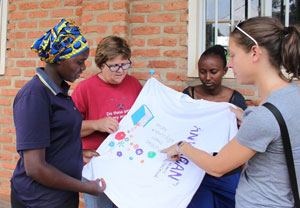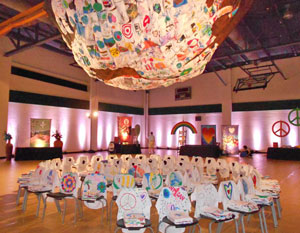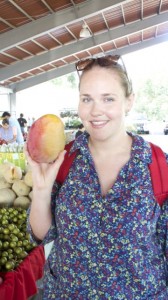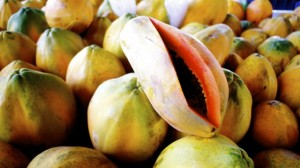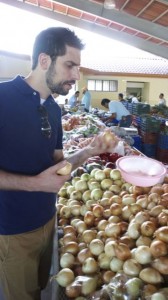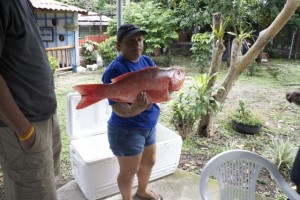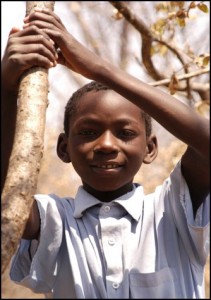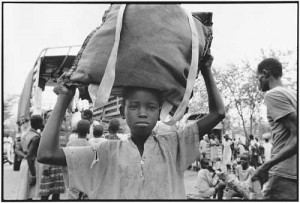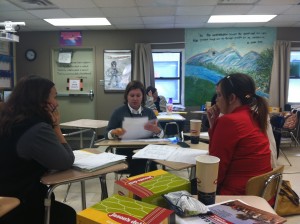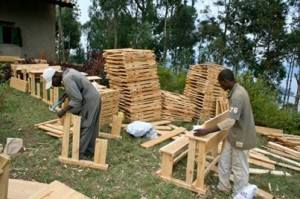James Lubo Mijak, December 28, 2017
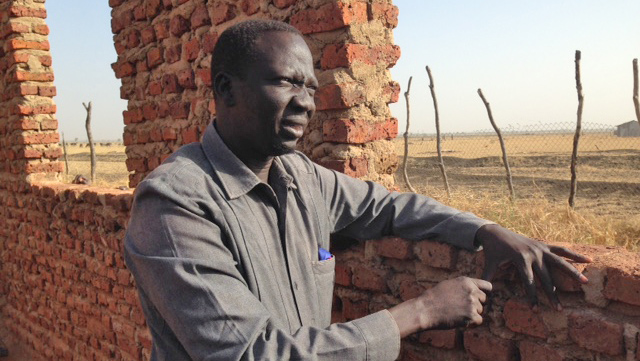 Greetings from South Sudan. I am saying “Hello” and also
“Thank You, very much.”
Greetings from South Sudan. I am saying “Hello” and also
“Thank You, very much.”
It has been a very busy year, and we are ready for the holidays. I am wishing you God’s blessings for your holiday, too. The schools have just finished their classes, and the students in P8, the final year of primary school, have just finished national exams. We are waiting for the results. Schools will open next year in February.
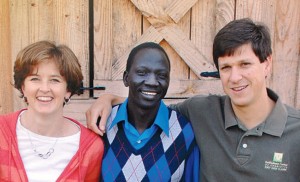 In this letter, I want to focus on the Nyarweng and Gumriak primary schools in Ruweng State because they were the start of what is now the Raising South Sudan project. These schools represent a dream I had when I was a former Lost Boy of Sudan living in Charlotte, North Carolina. I wanted to start with a school in my home village of Nyarweng and my friends Leslie and Phillips Bragg offered to help me find the way. Then, along with Ngor Kur Mayol of Atlanta and Karen Puckett of Salisbury, North Carolina, we also wanted to support children from Ngor’s home village of Aliap. Later, we made a collaboration with James Manyror, he lives near Denver, and he started an orphanage and school called Gumriak. Today, our dreams are alive and still growing. More than 450 students took exams at Nyarweng this year. Almost 350 students did the same thing at Gumriak. That is amazing.
In this letter, I want to focus on the Nyarweng and Gumriak primary schools in Ruweng State because they were the start of what is now the Raising South Sudan project. These schools represent a dream I had when I was a former Lost Boy of Sudan living in Charlotte, North Carolina. I wanted to start with a school in my home village of Nyarweng and my friends Leslie and Phillips Bragg offered to help me find the way. Then, along with Ngor Kur Mayol of Atlanta and Karen Puckett of Salisbury, North Carolina, we also wanted to support children from Ngor’s home village of Aliap. Later, we made a collaboration with James Manyror, he lives near Denver, and he started an orphanage and school called Gumriak. Today, our dreams are alive and still growing. More than 450 students took exams at Nyarweng this year. Almost 350 students did the same thing at Gumriak. That is amazing.
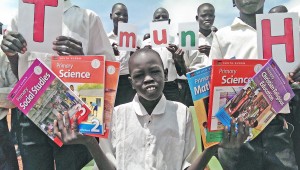 I am proud of the Nyarweng and Gumriak schools. They were the only ones in our communities that stayed open all year. Teachers were always paid, and meals were served every day. We have scholarships for girls to continue at a very good boarding school for the high school years, and we hope that we can start helping boys continue in high schools next year. These are still the only schools in the area with textbooks for students and adult literacy programs.
I am proud of the Nyarweng and Gumriak schools. They were the only ones in our communities that stayed open all year. Teachers were always paid, and meals were served every day. We have scholarships for girls to continue at a very good boarding school for the high school years, and we hope that we can start helping boys continue in high schools next year. These are still the only schools in the area with textbooks for students and adult literacy programs.
This does not mean that everything is perfect. South Sudan is a hard place to work. One example is that many trees in Ruweng State have been cut down for cooking wood, so there are strong winds. The roof on a building under construction at the Gumriak School was blown off. With funds from donors we built a semi-permanent building and raised the ground at the compound to avoid flooding during the rainy season. The students and teachers are very grateful. But the damage to the roof delayed us from providing more desks for students. Also, our teachers at both schools walk long distances, and we didn’t have the budget to provide bicycles to them this year. We started a demonstration farm but have a lot to do to make farms bigger and provide enough meals for the school children in the future.
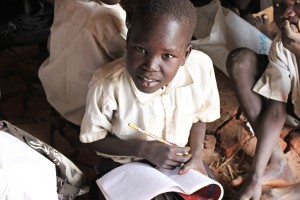 Our biggest challenge is always having enough classroom space and training the best teachers. To keep the Nyarweng and Gumriak schools open in 2018 we need to pay 30 teachers and staff to work with almost 800 students.
Our biggest challenge is always having enough classroom space and training the best teachers. To keep the Nyarweng and Gumriak schools open in 2018 we need to pay 30 teachers and staff to work with almost 800 students.
Even with the challenges, we are all very grateful! We feel the love of many donors, churches and friends. We always say in our local language that “One hand cannot clap.” We clap when your hands and our hands join together. I hope you can please help with a donation so the children can continue their education.
Thank you very much,
James Lubo Mijak
Raising South Sudan,
Country Project Director

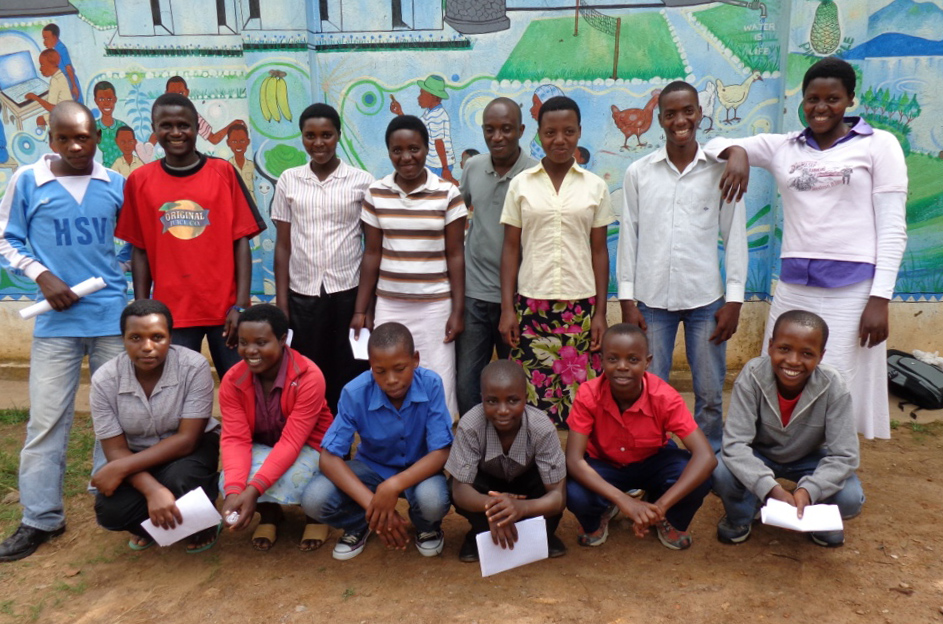
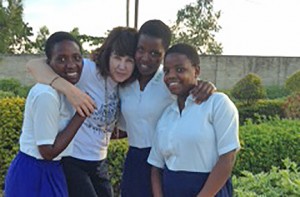
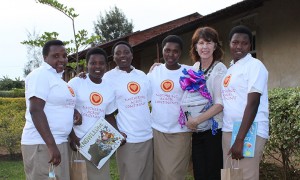 It was only eight years ago that a student-inspired mural called “This is Our Dream” was painted on Mwiko Primary School, the place from which nearly all of our current scholars came. This rural school of 592 students near enormous volcanoes and lots of tourism in the northern province of Rwanda has extremely limited resources. It had previously never had a merit-based scholarship program.
It was only eight years ago that a student-inspired mural called “This is Our Dream” was painted on Mwiko Primary School, the place from which nearly all of our current scholars came. This rural school of 592 students near enormous volcanoes and lots of tourism in the northern province of Rwanda has extremely limited resources. It had previously never had a merit-based scholarship program. 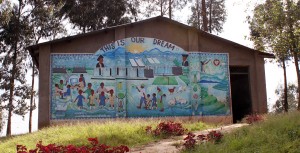 Continuing an education after 6th grade (P6) typically means attending what’s called a “9-years Basic school” by walking 50 minutes one way and 50 minutes back each day.
Continuing an education after 6th grade (P6) typically means attending what’s called a “9-years Basic school” by walking 50 minutes one way and 50 minutes back each day.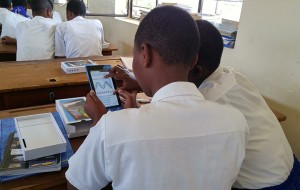
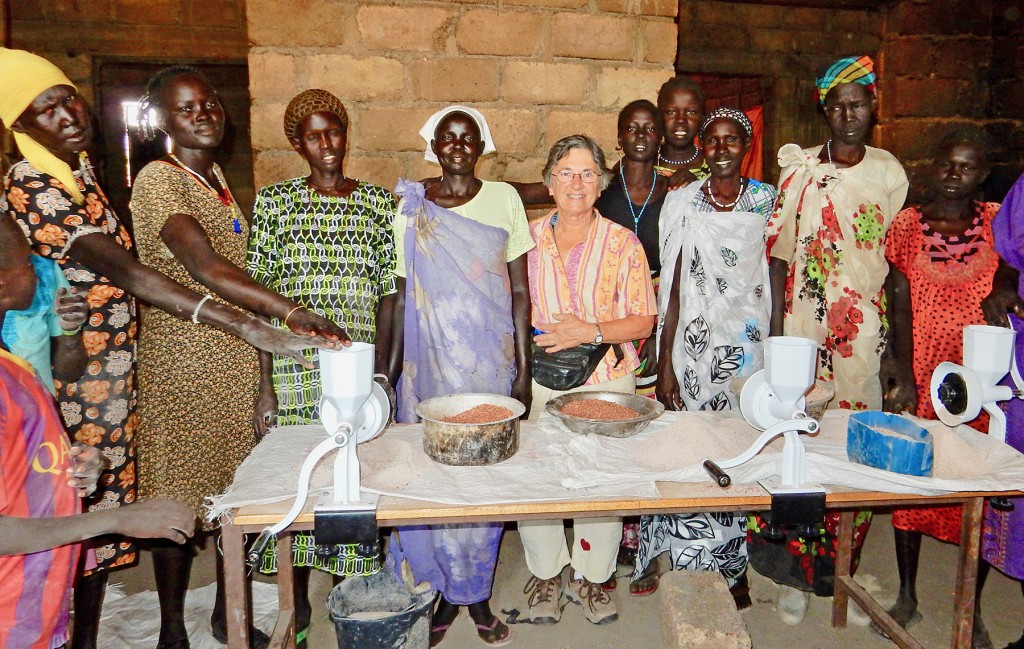
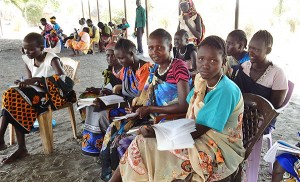 Education for All
Education for All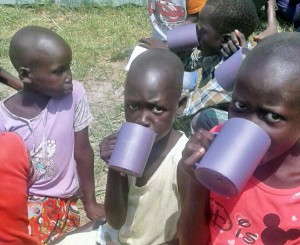 Hunger is an Enemy
Hunger is an Enemy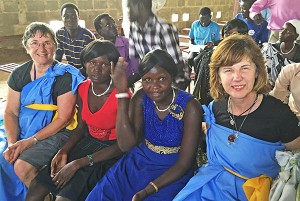 Collaborations Matter
Collaborations Matter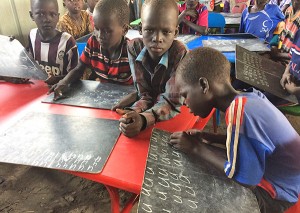 On My Next Trip
On My Next Trip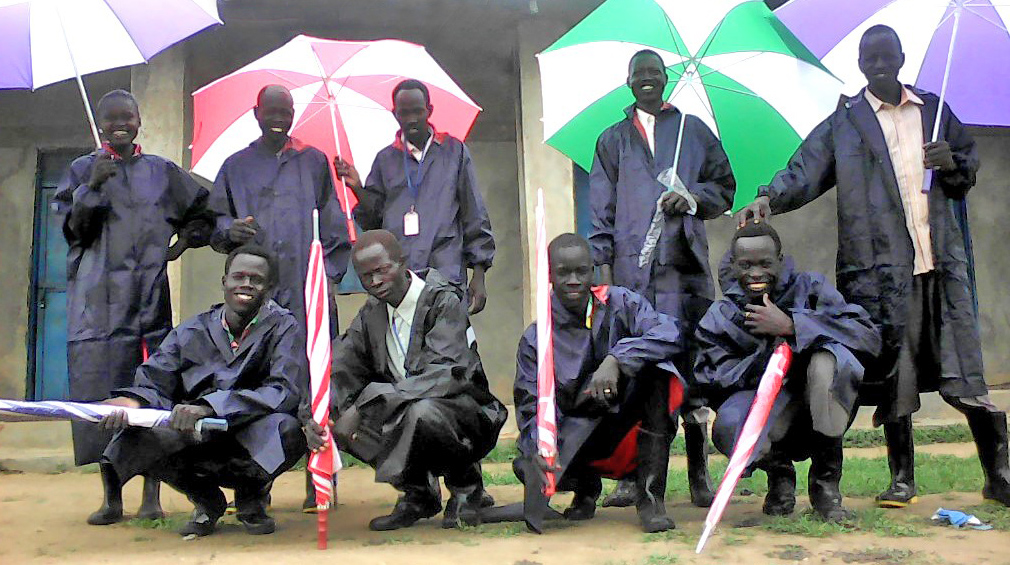 When people first hear about our Raising South Sudan education project they often say, “Do you build schools?” Answer: “Yes.”
When people first hear about our Raising South Sudan education project they often say, “Do you build schools?” Answer: “Yes.”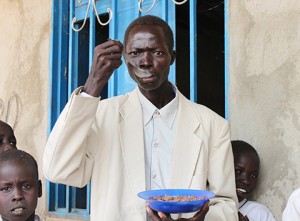 Lunch, Tea, Agriculture
Lunch, Tea, Agriculture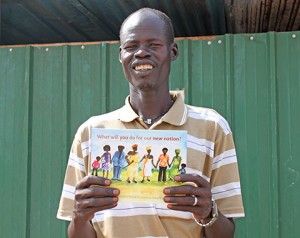 Books, Materials, Training
Books, Materials, Training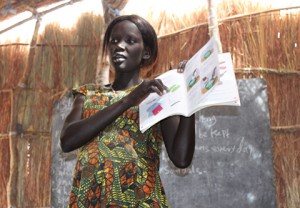 Women, Girls, ECD Innovations
Women, Girls, ECD Innovations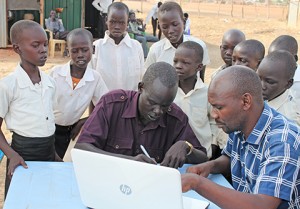 Serious About Testing
Serious About Testing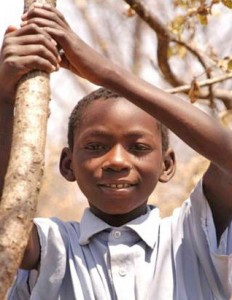 It’s always heartwarming to open letters from a young man or woman expressing gratitude. We just received a Thank You from Piet Ng’andu in Zambia and Monykong Mijak Dau in South Sudan.
It’s always heartwarming to open letters from a young man or woman expressing gratitude. We just received a Thank You from Piet Ng’andu in Zambia and Monykong Mijak Dau in South Sudan.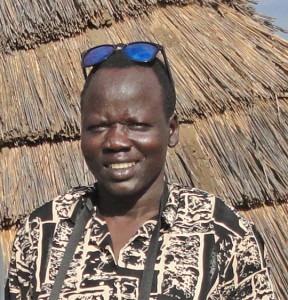 Design. I thank you for your support without which I would not have managed to achieve what I have so far. Faithfully, Piet.“
Design. I thank you for your support without which I would not have managed to achieve what I have so far. Faithfully, Piet.“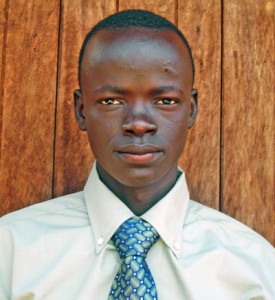 his life and feeling loved. Reflecting, Monykong writes: “Here in Africa . . . I have discovered the significant role education plays in building character, unearthing and developing human potential, for the collective benefit of both a particular nation and the world at large.”
his life and feeling loved. Reflecting, Monykong writes: “Here in Africa . . . I have discovered the significant role education plays in building character, unearthing and developing human potential, for the collective benefit of both a particular nation and the world at large.”